DAPI 101: Outreach and Enforcement
Even as the minimum Random Drug Testing Rate is raised to 50 PCT, the Coast Guard wants its mission to consist of 90% outreach and just 10% enforcement. Really.The domestic waterfront got some less-than-happy news when the U.S. Coast Guard announced that the calendar year 2019 minimum random drug testing rate had been set at 50 percent of covered crewmembers. It’s safe to say that nobody is happy about it, much less the Coast Guard itself.In truth, the Coast Guard had little to say about the matter. 46 CFR part 16.230(f)(2) requires the Commandant to set the minimum random drug testing rate at 50 percent when the positivity rate for drug use is greater than one percent.
Avoiding the Edges of the Sea
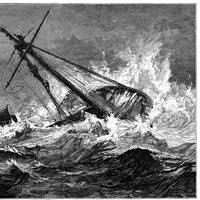
Mariners do best when they avoid the edges of the sea – the shoals, rocks, and other hard spots. Coming into contact with the edges of the sea at other than a slow walking speed can ruin an otherwise pleasant voyage. Unfortunately, though, vessels have been making hard contact with the edges since Noah’s Ark grounded on Mount Ararat, rendering the Ark unseaworthy. For a while, it was thought that the leadline would reduce groundings, but one can’t be swinging the leadline constantly. Lighthouses were another early means of identifying hard spots by means other than direct contact.
Chalos Joins K&L Gates New York Office
Michael G. Chalos has joined the New York office of global law firm K&L Gates LLP as a partner in the maritime practice. Previously the senior partner at the firm of Chalos O’Connor, LLP, Chalos is accompanied in his move by associates Luke Reid and George Kontakis in the firm’s Boston and New York offices, respectively. With a focus on traditional maritime and criminal environmental law, Chalos represents clients involved in high-profile civil and criminal environmental litigation. This has included the successful defense of the masters of the Exxon Valdez oil tanker and Selendang Ayu cargo ship, as well as numerous United States- and foreign-based corporations, ship owners, managers, operators, and crew who were the targets of criminal investigations by the U.S. government.
Spill Response Discussion with SCAA President Scott Metzger
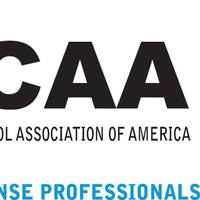
Scott Metzger has been with Clean Harbors Environmental Services for more than 22 years. He is the Senior Vice President, Emergency Services and holds an oversight role for the Clean Harbors National Strike Team that manages environmental incidents. When not deployed on an event, Scott is focused on ER preparedness, readiness, training and the strategic development of response teams. And now, as the President of the Spill Control Association of America (SCAA), he’s got even more on his plate. Couple this with the advent of the U.S.
Safe Operations, Proven Results
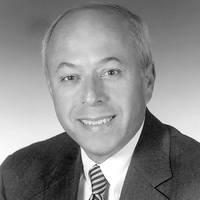
The recent editorial (MarineNews February edition) by Jeff Cowan entitled “The Articulated Tug Barge (ATB) Quandary” raised more than a few eyebrows here at the American Waterways Operators (AWO) and among AWO members who operate ATBs. Mr. Cowan has it backwards: far from being unsafe, ATBs in fact represent a significant advancement in safety in the coastal tugboat and barge industry and have a long history of safe operation. Mr. Cowan’s piece also contained several factual errors…
China Focus for Swedish Club Academy
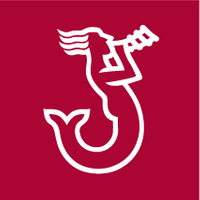
The Swedish Club Academy focuses on China during a five-day Maritime Resource Management road show at the end of March. MRM training aims at establishing safe operational cultures where teamwork and effective communication are key components, even to the extent of encouraging crew members to ‘challenge’ decisions made by their masters and superiors. “People with high rank can make mistakes too, and when they do the team members who detect it must be assertive enough to voice their concerns,” says Martin Hernqvist, Managing Director of The Swedish Club Academy.
Veteran Maritime Attorney Changes Sides
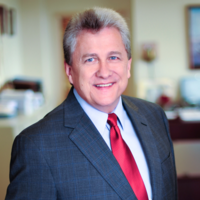
George M. Jones joins Los Angeles Maritime Law offices of Charles D. Naylor. An experienced trial attorney, Mr. Jones brings to the firm more than 20 years of maritime law experience. “I’ve known George for almost 20 years, and amongst fellow maritime lawyers, he has a reputation for being one of the best – for his legal expertise, character and integrity,” said maritime attorney Charles D. Naylor. At the Law Offices of Charles D. Naylor, Mr. Jones is leading the firm’s Longshore and Harbor Workers’ Compensation Act (LHWCA) claims team…
The Articulated Tug Barge (ATB) Quandary

Inconsistent Rules Create Uneven Application of Standards. (Captain) Jeff Cowan explores the how and why of the safety gap that comes as a direct result. Oil tankers and cargo vessels face a number of oil spill prevention regulations especially along the U.S. coast. Surprisingly, many of the regulations governing T-2 and T-3 sized tankers which carry between 120,000 and 146,000 barrels of oil do not apply to the new Articulated Tug Barges (ATBs) that may carry as much if not more (400,000+ barrels).
Overseas Reymar Cleared to Sail; Investigation Continues
Overseas Reymar cleared to sail; Coast Guard Calls on Harbor Safety Committee to review Critical Maneuvering Areas; investigation continues. The U.S. Coast Guard has completed interviews, evidence collection, and a thorough safety inspection onboard the oil tanker Overseas Reymar which has been anchored in San Francisco Bay’s Anchorage 7 since the vessel’s allision with a support tower of the San Francisco-Oakland Bay Bridge Monday morning. Coast Guard inspectors and representatives from the vessel’s Flag State have determined the Overseas Reymar is safe to sail. This determination was based on a careful assessment of the vessel’s structural damage, and the inspection and testing of critical propulsion, auxiliary, navigation, safety, and environmental protection systems.
NTSB to Investigate SFO Allision

NTSB investigating allision between oil tanker and San Francisco-Oakland Bay Bridge. The National Transportation Safety Board today announced it is investigating an allision Monday between the oil tanker Overseas Reymar and one of the supports of the San Francisco-Oakland Bay Bridge. The NTSB named Barry Strauch the investigator-in-charge. Strauch will coordinate with the U.S. Coast Guard, which classified the accident today as a "major marine casualty," because the incident exceeded the threshold of more than $500,000 in property damage.
Clay Maitland Delivers Keynote Address in Stamford, CT
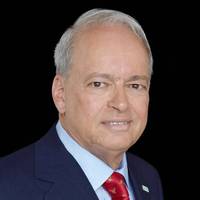
SHIPPINGInsight Fleet Optimization Conference kicks off as Maitland weighs in on how best to profitably operate a ship. Here we are, early in the morning, before the coffee has kicked in, and I am tasked with a “keynote speech”. You, in turn, have the job of being suitably inspired by my words of wisdom. So, here is my theme, for the next two days: we are out to define how to profitably operate a ship. The system, and how to select it, are a big part of the decision. The late Peter Drucker was a famous management guru, who exercised a powerful influence during much of the 20th century.
Container Ship Owner Sues Pharmacists
The owners and operators of a container ship that slammed into the San Francisco-Oakland Bay Bridge in 2007 and spilled thousands of gallons of oil into San Francisco Bay have sued the Northern California pharmacists they claim negligently dispensed prescription drugs to the pilot of the Cosco Busan, according to news in 'The Washington Post'. The ship’s owner, Regal Stone Ltd., and operator Fleet Management Ltd. Alleged in court papers filed in San Francisco Superior Court Friday that the pills “recklessly” provided by pharmacists at a Longs drug store in Petaluma, Calif. had so clouded pilot John Cota’s judgment and dulled his reflexes that they led to the crash.
NOAA Releases Restoration Plan for Cosco Busan Impacts
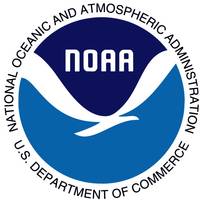
Final Restoration Plan Completed for Cosco Busan Oil Spill; Projects will Address Impacts from Ship that Struck the Bay Bridge. State and federal trustee agencies have released the Cosco Busan Oil Spill Final Damage Assessment and Restoration Plan. The document summarizes the injuries to wildlife, habitat, and recreational uses from the oil spill that occurred on Nov. 7, 2007. It also describes a number of restoration projects that will be implemented to compensate for injuries from the spill.
New Year, New Vessel
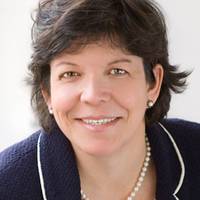
Start the year off right with the newest addition to your fleet. Vessels come with lots of manuals and instructions as well as increasing amount of high-tech equipment. That said and even if it just involves a new digital camera or Blu-Ray Player, reading manuals is never exciting. Similarly, reviewing equipment documentation on a vessel is downright daunting, especially when you consider all of the other work it takes to get a vessel into service. That said; it is critical that the crew understand new equipment and are able to operate it.
NAMEPA’s Maitland Addresses Leaders in China

At a recent Senior Maritime Forum held in conjunction with Marintec China 2011, Clay Maitland called for marine environment protection as “an essential strategy for corporate risk management”. As NAMEPA’s (North American Marine Environment Protection Association) Founding Chairman, Maitland told the over 400 senior Chinese leaders that “Clean seas are good business”. “In these times of economic pressure, rising insurance costs, and growing regulatory pressure, no shipowner, or charterer, should neglect its risk management procedures,” urged Maitland.
$44 Million Settlement in 2007 San Francisco – Oakland Bay Bridge Crash and Spill
Oil Spill Proceeds Of Settlement to Fund Projects and Restore Natural Resources Largest Oil Pollution Act Settlement in History of the Law. Federal, state and Bay-area officials announced a comprehensive civil settlement with the owners and operators of the M/V Cosco Busan, resolving all natural resource damages, penalties and response costs that resulted from the ship striking the San Francisco-Oakland Bay Bridge in 2007, and subsequent oil spill in the San Francisco Bay. The event killed thousands of birds, impacted a significant portion of the Bay’s 2008 herring spawn, spoiled miles of shoreline habitat and closed the bay and area beaches to recreation and fishing. The U.S.
NAMEPA Present Award to U.S. Coast Guard
September 21, 2009 Clay Maitland, Founding Chairman of the North American Marine Environment Protection Association (NAMEPA), announced that the United States Coast Guard is the recipient of NAMEPA’s 2009 Marine Environment Protection Award. The award will be presented at NAMEPA’s Awards Dinner to be held in New York in conjunction with the 2009 World Maritime Day Parallel Event on October 16th. Commandant Allen will be present to accept the award. The NAMEPA Marine Environment Protection Award is given in recognition of an individual or organization’s efforts on behalf of preserving the marine environment as exemplified by a commitment to a program which has specific objectives set for environmental performance and improvement…
Prison Sentence For Cosco Busan Pilot
John Joseph Cota, the pilot who caused the Cosco Busan, a 900-ft long container ship, to collide with the San Francisco Bay Bridge and discharge approximately 53,000 gallons of oil into San Francisco Bay, was sentenced to serve 10 months in federal prison by U.S. District Court Judge Susan Illston for the Northern District of California, the Justice Department announced. Cota, who was a licensed bar pilot at the time of the collision, gave commands that caused the 65,131-ton Hong Kong-registered ship to collide with the bridge on Nov. 7, 2007. Cota was sentenced according to an agreement in which he pleaded guilty to negligently causing discharge of a harmful quantity of oil in violation of the Clean Water Act (CWA)…
Hearing for Fleet Management Pilot
According to the San Francisco Chronicle, federal prosecutors told a judge that the pilot of the container ship that struck the Bay Bridge in November 2007 ignored basic safety precautions, lied to licensing authorities about his prescription drug use, and should be sentenced to 10 months in prison, the maximum recommended by his plea agreement. Capt. John Cota's lawyers asked for a two-month sentence, the minimum term in the plea agreement, and argued that prosecutors were making the 61-year-old pilot a scapegoat in "an accident with many causes." Their papers were filed Friday with U.S. District Judge Susan Illston, who is scheduled to sentence Cota this Friday. A court probation officer has recommended a $30,000 fine – which Cota's lawyers accepted – and a three-month sentence.
Cummings on Maritime Credentialing
In a prepared statement for Congressman, Elijah E. Cummings (D-Md.), Chairman of the House Subcommittee on Coast Guard and Maritime Transportation, addressed a hearing on The National Maritime Center and Maritime Credentials. A live webcast of the hearing is available at http://transportation.house.gov. “We convene today to review the operations of the National Maritime Center and the issuance of merchant mariner credentials. “Over the past 18 months, the Coast Guard has consolidated the credentialing functions that were previously provided at 17 Regional Exam Centers into the National Maritime Center – and the Center opened at a new facility in West Virginia. “The Coast Guard has also made significant changes to the actual credential that it issues.
Guilty Plea in Case of Cosco Busan Ship Pilot
John Joseph Cota, a California ship pilot, pleaded guilty on March 6 to negligently causing the discharge of approximately 53,000 gallons of oil into San Francisco Bay in violation of the Oil Pollution Act of 1990, a law enacted in the wake of the Exxon Valdez disaster. Cota, who piloted the M/V Cosco Busan when it hit the San Francisco Bay Bridge on Nov. 7, 2007, also pleaded guilty to violation of the Migratory Bird Treaty Act for the death of protected migratory birds. If the plea terms are accepted by U.S. District Court Judge Susan Illston, Cota will be sentenced to serve between two and ten months in prison and be fined between $3,000 to $30,000.
Multiple Factors Caused Container Ship Accident
The National Transportation Safety Board determined on Feb. 18 that a medically unfit pilot, an ineffective master, and poor communications between the two were the cause of an accident in which the Cosco Busan container ship spilled thousands of gallons of fuel oil into the San Francisco Bay after striking a bridge support tower. On November 7, 2007, at about 8:00 a.m. PST, in heavy fog with visibility of less than a quarter mile, the Hong Kong- registered, 901 ft container ship M/V Cosco Busan left its berth in the Port of Oakland destined for South Korea. The San Francisco Bay pilot, who was attempting to navigate the ship between the Delta and Echo support towers of the San Francisco-Oakland Bay Bridge…
CA Files Suit Against Cosco Busan
California Attorney General Edmund G. Brown Jr. filed a lawsuit today on behalf of the California Department of Fish and Game Office of Spill Prevention and Response, State Lands Commission and State Water Boards against the owners, operators and pilot of the M/V Cosco Busan, the shipping vessel that spilled more than 53,000 gallons of oil into San Francisco Bay. “This was a preventable accident that had tragic consequences,” Attorney General Brown said. On November 7, 2007, the Cosco Busan, piloted by John Cota, hit the San Francisco-Oakland Bay Bridge’s Delta Tower. The crash caused approximately 53,569 of gallons of oil to spew into San Francisco Bay and spread to the Pacific Ocean and along Bay Area shorelines.







